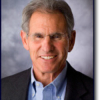Jon Kabat-Zinn

Jon Kabat-Zinn
Jon Kabat-Zinnis Professor of Medicine Emeritus and creator of the Stress Reduction Clinic and the Center for Mindfulness in Medicine, Health Care, and Society at the University of Massachusetts Medical School. Kabat-Zinn was a student of Buddhist teachers such as Thich Nhat Hanh and Zen Master Seung Sahn and a founding member of Cambridge Zen Center. His practice of yoga and studies with Buddhist teachers led him to integrate their teachings with those of science. He teaches mindfulness, which he...
NationalityAmerican
ProfessionEducator
Date of Birth5 June 1944
CountryUnited States of America
When we let go of wanting something else to happen in this moment, we are taking a profound step toward being able to encounter what is here now. If we hope to go anywhere or develop ourselves in any way, we can only step from where we are standing. If we don't really know where we are standing—a knowing that comes directly from the cultivation of mindfulness—we may only go in circles, for all our efforts and expectations. So, in meditation practice, the best way to get somewhere is to let go of trying to get anywhere at all.
Paying attention and awareness are universal capacities of human beings.
The mind that has not been developed or trained is very scattered. That's the normal state of affairs, but it leaves us out of touch with a great deal in life, including our bodies.
Meditation is not about feeling a certain way. It's about feeling the way you feel.
Most people don't realize that the mind constantly chatters. And yet, that chatter winds up being the force that drives us much of the day in terms of what we do, what we react to, and how we feel.
From the point of view of the meditative traditions the entire society is suffering from attention deficit hyperactivity disorder.
It’s interesting to look at your children as line-in Zen masters who can put their finger on places where you’re resistant, or thinking narrowly, in ways noone else can. You can either lose your mind and your authenticity in the process of reacting to all that stuff, or you can use it as the perfect opportunity to grow and nourish your children by attending to what is deepest and best in them and in yourself.
As long as you are breathing, there is more right with you than there is wrong, no matter how ill or how hopeless you may feel. But if you hope to mobilize your inner capacities for growth and for healing and to take charge in your life on a new level, a certain kind of effort and energy on your part will be required.... It will take conscious effort on your part to move in a direction of healing and inner peace. This means learning to work with the very stress and pain that is causing you to suffer.
You could think of mindfulness as wise and affectionate attention.
Zen has an expression, "nothing special." When you understand "nothing special," you realize that everything is special. Everything's special and nothing's special. Everything's spiritual and nothing's spiritual. It's how you see, it's what eyes you're looking through, that matters.
Meditation is simply about being yourself and knowing something about who that is. It is about coming to realize that you are on a path whether you like it or not, namely, the path that is your life. Meditation may help us see that this path we call our life has direction; that it is always unfolding, moment by moment; and that what happens now, in this moment, influences what happens next.
Meditation means learning how to get out of this current, sit by its bank and listen to it, learn from it, and then use its energies to guide us.
We must be willing to encounter darkness and despair when they come up and face them, over and over again if need be, without running away or numbing ourselves in the thousands of ways we conjure up to avoid the unavoidable.
Meditation is simply about being yourself and know about who that is.